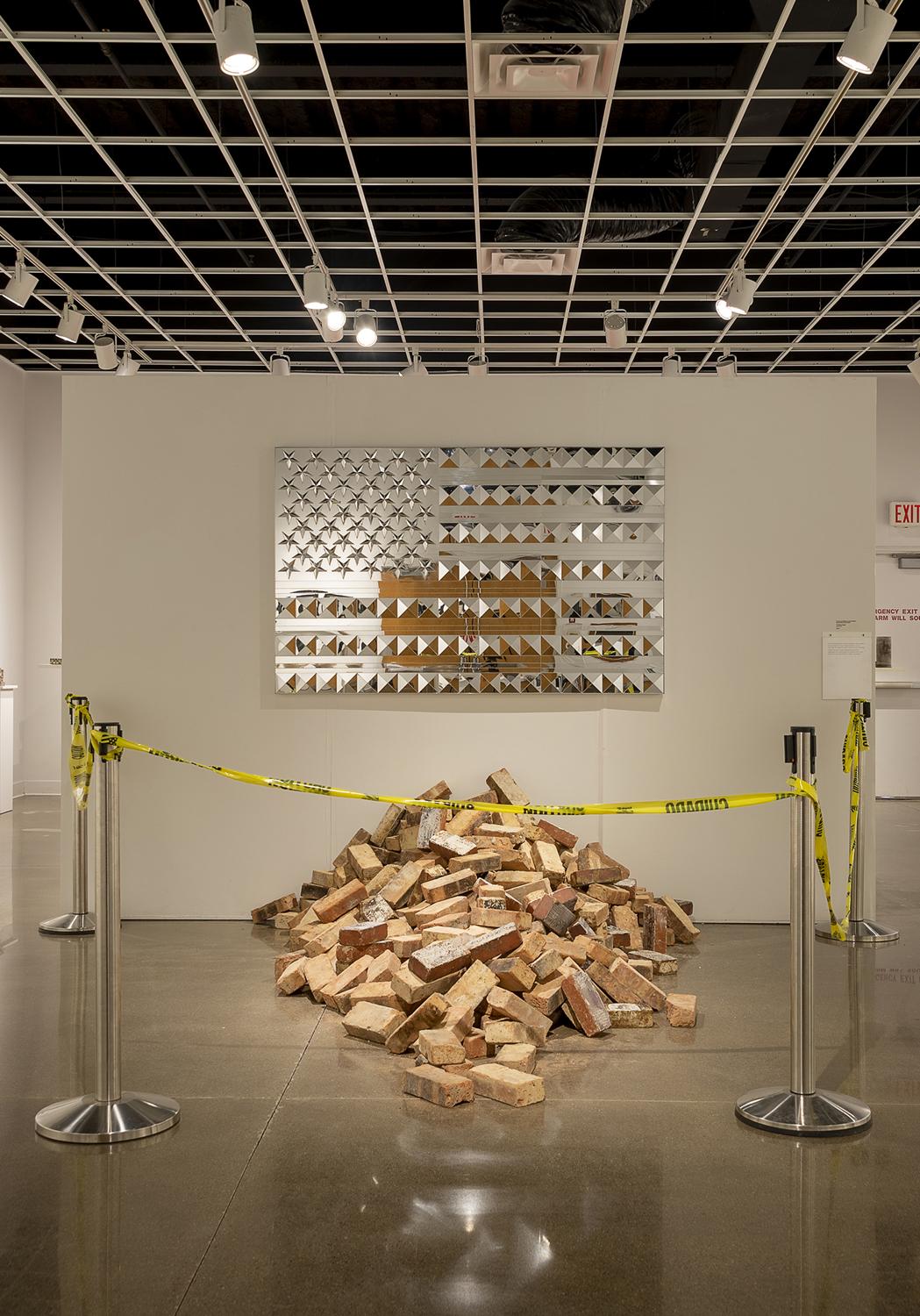
In Fall 2020, Pedram Baldari, assistant professor of studio art, joined UNT’s College of Visual Arts and Design where he teaches sculpture.
Baldari was drawn to the college not only because of the many options it has for students but also how it focuses on the practice of research in the visual arts field.
“The fact that students can move in between art and design is a golden combination and really attractive for me as a scholar and educator in the field of art,” Baldari says. “Another reason I joined the team is the school’s ability and willingness to expand and integrate interdisciplinary practice into art in fairly contemporary and new directions in the art world and art education.”
Born in the Kurdish region of Iran, Baldari takes experiences from his upbringing, his time in the United States and issues that he finds meaningful and incorporates them into his art research. He has showcased projects around the world.
From the idea of homeland citizenship to colonization to war, Baldari believes that issues and topics are a way for art enthusiasts to get a sense of the struggles that others go through.
“Art is a path to engage in an active way. It allows a path to think, study, explore and understand the process,” Baldari says. “My work facilitates the idea of healing and provides a platform for people to think about a path forward.”
Employing a wide range of processes in his art practice, Baldari uses video, performance, hybrid forms, installation, social practice, radio transmitting — converting surfaces into radio antennas and sculpture.
He uses his creativity and puts on a show for his audience as a way for them to engage and put things into perspective when new ideas are introduced.
“Being an interdisciplinary artist, I try to navigate how to activate spaces and experiences using my body as the vessel and canvas,” Baldari says. “When you think about the body as material, then there are a lot of things you can do with it.”
Baldari is part of the 2021 cohort of UNT’s Washington D.C. Faculty Fellows, which helps faculty members like him get more funding for research. He is working on a project that if finalized, will involve other programs including media arts, the COVID-19 response team and the College of Music.
“The DC fellowship allowed me to seek partnership without fear,” Baldari say. “It was great experience to learn how to search and be a risk taker in terms of outreach.”
This led to a collaboration with Marco Buongiorno Nardelli, university distinguished research professor affiliated with both physics and composition. Together, they will create a series of projects that juxtapose Buongiorno Nardelli’s creative research on music complexity and networks and their use in algorithmic and generative music composition with Baldari’s research on improvisational and experimental installations that create sound and music.
“There is a lot of research that goes into creating artwork, and that process is the research we identify,” Baldari says. “In my field, I’m more experimental where my work involves a lot of bits that need to come together, and part of that research is understanding what those bits are and how you combine all those elements to create an experience.”
With the work that he’s done and what he plans to accomplish, Baldari hopes that other artists will apply themselves in different ways to get a point across and to encourage others see things from another perspective.
“I would really like future generations of artists to see and understand that they don’t need to go hide and isolate themselves from the world,” Baldari says. “To be able to see the world, you have to engage with it from multiple perspectives and experiences.”